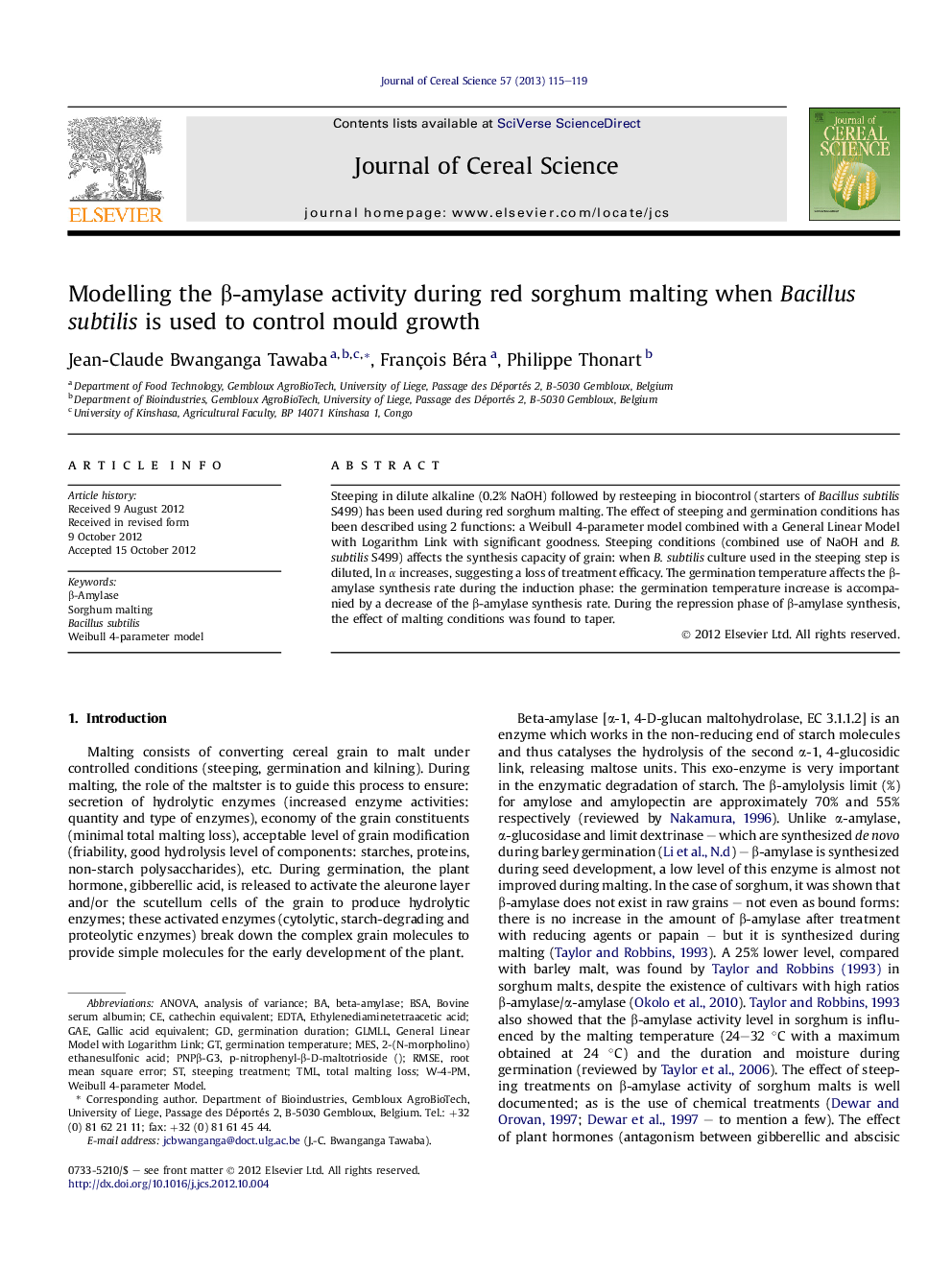| Article ID | Journal | Published Year | Pages | File Type |
|---|---|---|---|---|
| 4515917 | Journal of Cereal Science | 2013 | 5 Pages |
Steeping in dilute alkaline (0.2% NaOH) followed by resteeping in biocontrol (starters of Bacillus subtilis S499) has been used during red sorghum malting. The effect of steeping and germination conditions has been described using 2 functions: a Weibull 4-parameter model combined with a General Linear Model with Logarithm Link with significant goodness. Steeping conditions (combined use of NaOH and B. subtilis S499) affects the synthesis capacity of grain: when B. subtilis culture used in the steeping step is diluted, ln α increases, suggesting a loss of treatment efficacy. The germination temperature affects the β-amylase synthesis rate during the induction phase: the germination temperature increase is accompanied by a decrease of the β-amylase synthesis rate. During the repression phase of β-amylase synthesis, the effect of malting conditions was found to taper.
► The W-4-PM and the GLMLL correctly predict the β-amylase activity. ► The germination temperature affects the rate of β-amylase synthesis. ► The steeping conditions affect the capacity of β-amylase synthesis.
